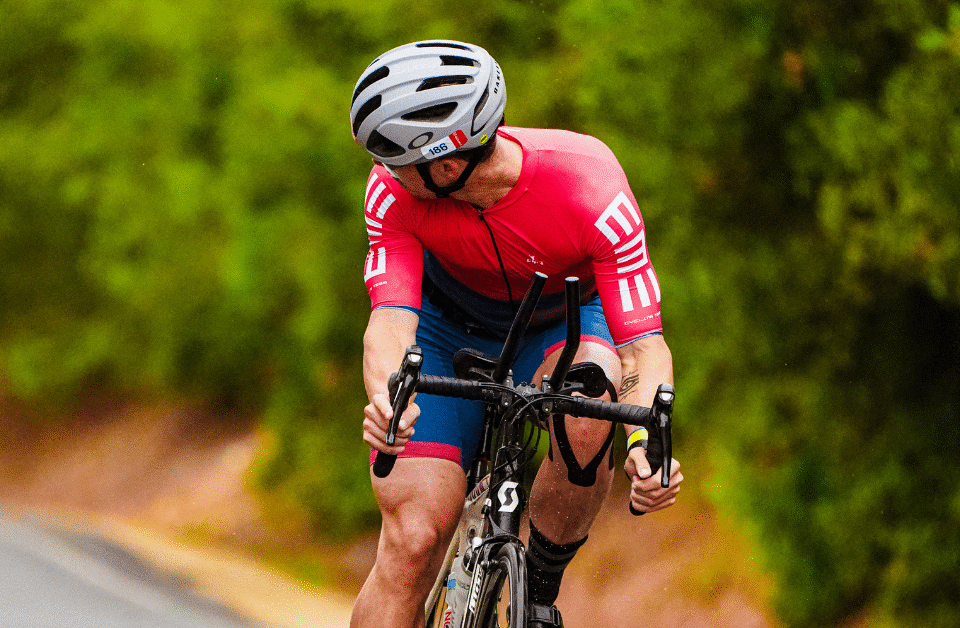
What to eat and drink during workouts? 10 TOP products
14 February 2018
Strength Training for Road Cycling Success – beginner’s guide
15 March 2019
Is triathlon, cycling or long-distance running for everyone?
Usually, the answer is YES!
Of course, a healthy, moderately active person is able to complete an Ironman 70.3 distance triathlon or a marathon after a few months of training and preparation. However, when I asked the above question, I did not really mean only the physical aspect.
The common opinion about endurance sports is that 80-90% of our strength comes from our mind, and talent is not particularly needed. Usually, it is enough to work diligently and patiently follow the next steps of our daily workout routine on the way to the fixed goal.
Here comes the first doubt: so, are endurance sports for everyone …? If we mean fun – yes! However, if a specific result appears on the horizon of goals in the next 3-5 years perspective, then appropriate character and temperament are needed.
Next workouts, next races, next personal best’s cause a growing increase in endorphins in our body and we do not notice when we become addicted to the emotions that sport provides us. If at the same time, in our everyday ‘out of sport’ life there are insufficient vibes and stimuli, our emotional ‘center of gravity’ gradually shifts towards sport and we do not notice when we become addicted to it, and each subsequent emotion requires more dedication from us. We lose ourselves.

Most of the athletes I work with are triathletes – full-time job, in a relationship and with children. Everyday life is real jugglery of family, business and training duties with permanent control of the time that passes mercilessly. So as it is not hard to guess, endurance training is not only our sacrifice and consistency in following the goal but, above all, acceptance of our passion by the family and the environment. It is impossible to draw a clear border between work and duties, passion and work – in the daily rhythm, most things overlap and, in many cases, they have a positive impact one on another. At work, we are more productive after a morning workout, and an evening jog allows you to get rid of the stress accumulated during the daytime.
Looking for a balance between duties and passion in everyday life, you can follow some of the following and proven tips. Here they are:
• Set priorities.
Think about what are the most important things for you and mark them with priorities. It will allow you to set your own invisible border, which you cannot cross both at work and while engaging in your passion. This limit is usually determined by the time you want to devote to the family and friends during the week – in principle, in our entire plan, this is the only non-negotiable thing. You should fit the rest into the remaining timeframe.
• Create a weekly calendar/schedule.
On a sheet of paper, you can mark all the different weekly duties in different colors, both professional and family and time for training. Usually, the weeks are not much different from each other, but be in constant contact with your coach, so that the training plan would complement your free time and do not require unnecessary sacrifice. In such a clearly laid out week, it’s easy to find a surplus time and see where you waste it the most. You can spend the time in front of the TV screen while working out on the trainer, and take your favorite book as an audiobook with you to running workout. Put the final version of the weekly schedule on the fridge so that all family members have access to it.

• Family planning.
To prepare a weekly schedule, ask your family and/or partner for help – there are things that you could forget and do not include in your schedule or maybe your partner has some other plans that you will need to consider when planning your workouts. Remember about communication and compromises. It is not always worth getting it all your own way. When planning your racing season, try to place your preparation and control races in your area to minimize logistics and related costs. You can spend the saved money on a shared holiday, or a more exotic race location. It is important that during these family planned longer trips not only you have fun while racing, but also that your companions could also spend an interesting time.
• Creativity and consistency.
If you have the opportunity in your daily homework – home commutes, exchange your car or bus for a bike or running shoes, do it! Leaving home earlier, you can do a solid workout before work and shower in the office. This way, you use the same time slop for a double purpose that could be wasted in traffic jams. Try to start your long, weekend workouts as early as possible in the morning when the family is still asleep – you can save time planned for the family. Morning doppio will help you achieve this! However, if due to some unplanned circumstances the time dedicated to training shrinks, remember that it is always better to do less than not do anything. Even during 20-30 minutes of running, you can do solid technical or strength training. Be consistent.

• Bet on quality.
If, despite many sacrifices, your weekly schedule does not fit within a 24-hour day, think about changing plans or talk to your coach – maybe there is an option to reduce the volume and put greater emphasis on the quality or intensity of training. In addition, you do not have to compete in full-IM or half-distance competitions like your colleagues. To prepare for a shorter distance will certainly be easier to manage in volume, and satisfaction with a good result will not be less. Save the long distance for the future when your children get older or for when you have a less absorbing job.
• Time for Off-Season
After each, even the most intense season there comes the moment for rest and recovery. Spend 100% of this time with your loved ones, and turn your workouts into a shared, active way of spending time. Perhaps the last, final race in the season is worth combining with family holidays in an interesting place? Consider this by planning the race season. It’s a great way to get rid of all the stress related to sport. I know that the first days can be a shock for you – it will not be easy to part with your daily routine 😉

Author:
Rafał Chomik
If you have any of your own, proven methods in the fight against adversities of everyday life – share in the comment under the post.

